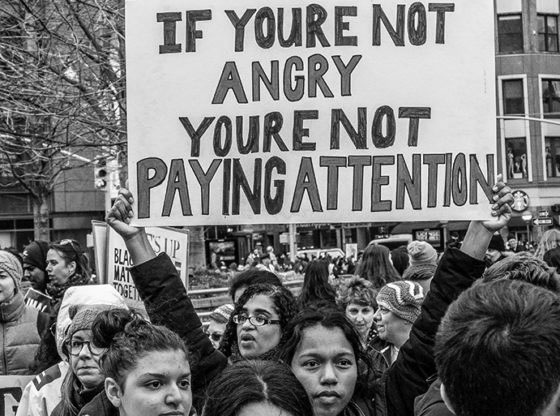Title IX and BIPOC: What About Us?
Conversations about BIPOC people have been left out within the Title IV movement on campus. There has been no mention of them, and they feel as though their voices haven’t been heard as well. On Oct. 12, a protest occurred at President Morris’ house, where students spoke out against the current sexual misconduct policies on campus. They shared their experiences with sexual assault on campus and questioned the administration’s response to the sexual assault. It was a powerful experience, as hundreds of students showed up in solidarity, but there was a lack of response as there was no mention of the BIPOC community even after they showed up as well. They felt as if they weren’t included in the conversation and weren’t recognized at all.
Two weeks later at the student-led forum, which was led by the administration, there was no mention of how the BIPOC community would be protected as well and how they would move forward with their Title IX policies. When asked about the lack of diversity at the forum and how they didn’t mention BIPOC, they simply didn’t answer the question. The only response they received was a hesitant one. “I could only give you a small answer and not a full answer.” This response shows that they lack diversity and Inclusion when it comes to Title IV policies on campus and don’t feel the need for BIPOC people to be a part of the conversation as well. They didn’t have a clear answer, which shows that they aren’t doing enough with their statement to create a diverse and inclusive community.
“Every year, our team always does a section of intersectionality, which specifically talks about the needs of the BIPOC community, queer community, or disabled community,” they said. This is obviously not enough when St. Lawrence lacks diversity and inclusion—and while they are working on that mission, it impacts the BIPOC community tremendously when there is not enough action being taken to address these issues. There are statistics showing that BIPOC people are put at a higher risk of sexual violence. One-in-three women and one-in-six men experience some form of sexual violence in their lifetime. For every report, 15 do not. This is due to being afraid to talk about their experiences as they tend to get shut down, don’t feel heard, and never get justice due to the system being broken.
Many members of the BIPOC community feel as though they are not safe on campus and that there are no resources in place for them. They want people to be hired within administration who would understand them and recognize their struggles—which St. Lawrence lacks in.



